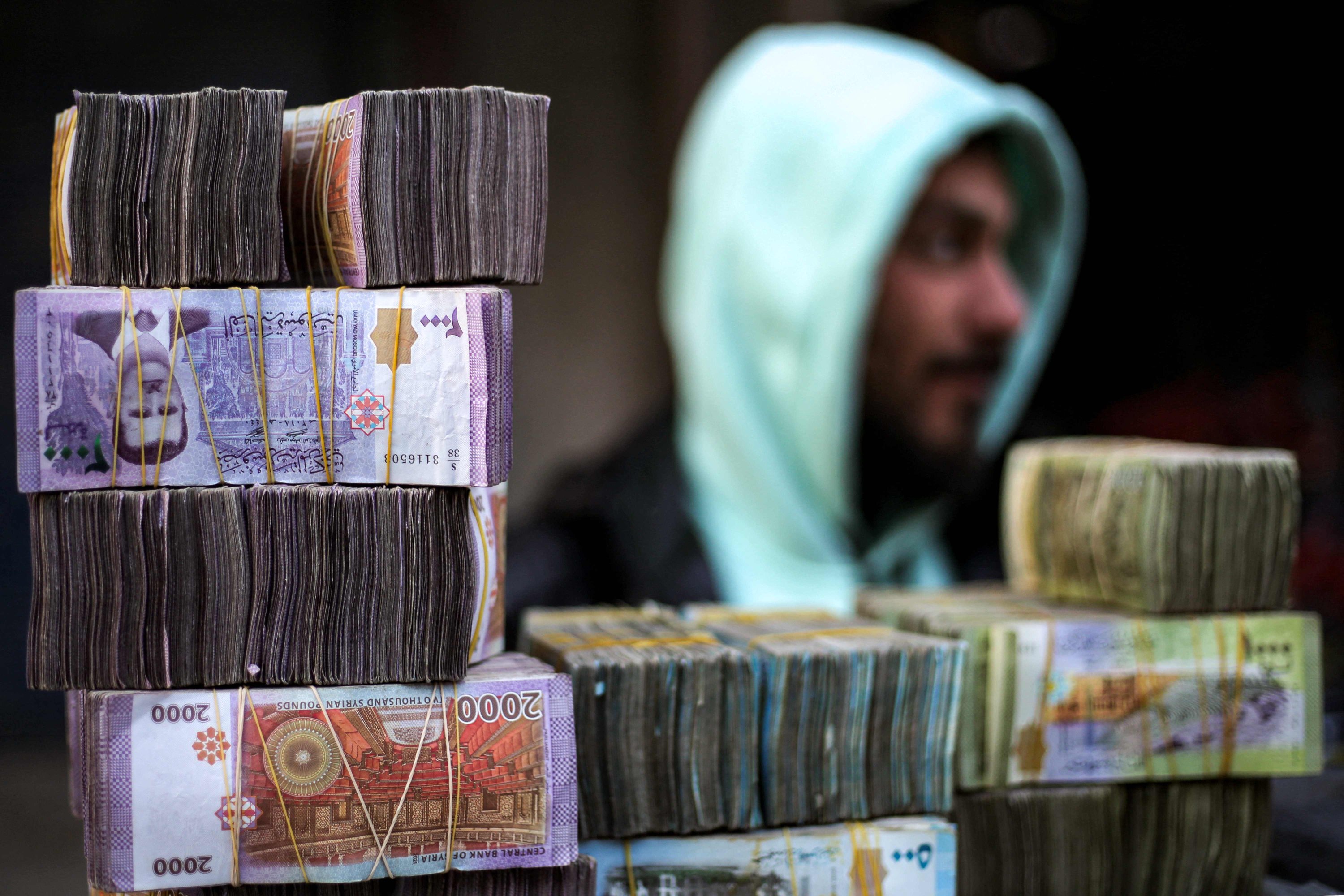jili casino free coins
‘Living in a home that damages health the norm for far too many older people’
Israel PM Benjamin Netanyahu undergoes prostate operation. How serious it? Check latest health updateCarlos Ghosn Sees Trouble Ahead For Japanese Auto Manufacturers
Jimmy Carter: Many evolutions for a centenarian ‘citizen of the world’
Sales growth of drugs slowed down in fiscal year 2023-24 ending last June, which could be an effect of high inflationary pressure prevailing in the country over the last two years. Meanwhile, prices of drug products of several companies have increased. The Bangladesh pharmaceutical market recorded a moderate sales growth of 7.2 percent in the fiscal year. It was an exceptional 15.3 percent in the preceding fiscal year. Last fiscal year's growth rate is lower than the average of 9 percent recorded by the industry in the past four years. The market sales amounted to Tk 32,870 crore in the year ending on June 30 this year, according to IQVIA, a leading global provider of advanced analytics, technology solutions, and clinical research services to the life sciences industry. It was Tk 30,660 crore in the preceding fiscal year. Sales growth of drugs dropped mainly due to a reduction in the purchasing capacity of people amid high inflation for more than two years, said Jubayer Alam, company secretary at Renata PLC. Inflation rose to 11.38 percent in November, the highest in four months, owing to the soaring prices of food, especially the staple rice and vegetables, according to the state-run Bangladesh Bureau of Statistics. It has remained over 9 percent since March 2023. Due to ongoing inflationary pressure, real income reductions have pushed at least 78 lakh people into poverty, according to a study of the Research and Policy Integration for Development (RAPID). This includes 38 lakh people who have become extremely poor. Besides, around 1 crore more are at risk of slipping below the poverty line due to continued inflationary pressures, the private research firm said. If people, especially lower middle income and financially insolvent people, do not feel an extreme need for medicine, they avoid going to pharmacies, said Alam. They prioritise other basic needs, such as food, over medication, he said. Among the different drug groups, antibiotics witnessed a 10.16 percent growth. It was 11.20 percent in the previous fiscal year. Rising awareness of self-care has driven the growth of certain medicines that currently require prescriptions but have the potential to become over-the-counter drugs. These include antihistamines and expectorants, which saw sales growths of 16.23 percent and 12.92 percent respectively. A few therapeutic class drugs like proton-pump inhibitors (PPIs), calcium and vitamins saw minimum growths of 5.72 percent, 6.63 percent and 4.89 percent respectively. PPIs represent a class of drugs most prominently known for their use in acid-related disorders. The pharmaceutical sector usually grows at a handsome rate every year, but the growth might not be high, especially when the country's GDP growth rate is projected to fall, said MA Razzaque, chairman of the RAPID. On the other hand, there is persistent inflationary pressure, for which people's purchasing power has dropped, he said. So, there is a possibility that people reduced their consumption of drugs. It is true that prices of drugs rose, so people are facing difficulties to afford medicine, he added. A top official of a listed drug company said every company could not adjust prices in spite of a rise in raw material costs due to the depreciation of the local taka against the US dollar. Apart from raw material costs, energy costs also experienced a notable increase, driven by a 10 percent increase in electricity prices and a 2.3 percent average increase in diesel prices in FY24. Company-wise, Square Pharmaceuticals saw a sales growth of 15 percent to reach Tk 7,010 crore while Beximco Pharmaceuticals 13 percent to Tk 4,439 crore and Renata PLC 14.4 percent to Tk 3,771 crore, according to their financial reports. Although the growth in consolidated sales, meaning sales including those of subsidiaries, was high, standalone sales growth of the companies were comparatively low. Regarding the industry's lower growth rate, Beximco Pharmaceuticals, in its annual report, said it reflects the broader economic challenges of the year, including persistent inflationary pressures, macroeconomic instability, and reduced GDP growth. These factors have posed significant challenges for the pharmaceutical industry, and prolonged inflation coupled with subdued economic conditions may continue to constrain market expansion in the coming year, it added. Bangladesh is largely self-sufficient in pharmaceuticals, producing 98 percent of the medicines needed for the domestic market. The industry is home to around 300 companies and has grown to become one of the country's top export sectors, supplying generic medicines to over 150 countries. Sales growth of drugs slowed down in fiscal year 2023-24 ending last June, which could be an effect of high inflationary pressure prevailing in the country over the last two years. Meanwhile, prices of drug products of several companies have increased. The Bangladesh pharmaceutical market recorded a moderate sales growth of 7.2 percent in the fiscal year. It was an exceptional 15.3 percent in the preceding fiscal year. Last fiscal year's growth rate is lower than the average of 9 percent recorded by the industry in the past four years. The market sales amounted to Tk 32,870 crore in the year ending on June 30 this year, according to IQVIA, a leading global provider of advanced analytics, technology solutions, and clinical research services to the life sciences industry. It was Tk 30,660 crore in the preceding fiscal year. Sales growth of drugs dropped mainly due to a reduction in the purchasing capacity of people amid high inflation for more than two years, said Jubayer Alam, company secretary at Renata PLC. Inflation rose to 11.38 percent in November, the highest in four months, owing to the soaring prices of food, especially the staple rice and vegetables, according to the state-run Bangladesh Bureau of Statistics. It has remained over 9 percent since March 2023. Due to ongoing inflationary pressure, real income reductions have pushed at least 78 lakh people into poverty, according to a study of the Research and Policy Integration for Development (RAPID). This includes 38 lakh people who have become extremely poor. Besides, around 1 crore more are at risk of slipping below the poverty line due to continued inflationary pressures, the private research firm said. If people, especially lower middle income and financially insolvent people, do not feel an extreme need for medicine, they avoid going to pharmacies, said Alam. They prioritise other basic needs, such as food, over medication, he said. Among the different drug groups, antibiotics witnessed a 10.16 percent growth. It was 11.20 percent in the previous fiscal year. Rising awareness of self-care has driven the growth of certain medicines that currently require prescriptions but have the potential to become over-the-counter drugs. These include antihistamines and expectorants, which saw sales growths of 16.23 percent and 12.92 percent respectively. A few therapeutic class drugs like proton-pump inhibitors (PPIs), calcium and vitamins saw minimum growths of 5.72 percent, 6.63 percent and 4.89 percent respectively. PPIs represent a class of drugs most prominently known for their use in acid-related disorders. The pharmaceutical sector usually grows at a handsome rate every year, but the growth might not be high, especially when the country's GDP growth rate is projected to fall, said MA Razzaque, chairman of the RAPID. On the other hand, there is persistent inflationary pressure, for which people's purchasing power has dropped, he said. So, there is a possibility that people reduced their consumption of drugs. It is true that prices of drugs rose, so people are facing difficulties to afford medicine, he added. A top official of a listed drug company said every company could not adjust prices in spite of a rise in raw material costs due to the depreciation of the local taka against the US dollar. Apart from raw material costs, energy costs also experienced a notable increase, driven by a 10 percent increase in electricity prices and a 2.3 percent average increase in diesel prices in FY24. Company-wise, Square Pharmaceuticals saw a sales growth of 15 percent to reach Tk 7,010 crore while Beximco Pharmaceuticals 13 percent to Tk 4,439 crore and Renata PLC 14.4 percent to Tk 3,771 crore, according to their financial reports. Although the growth in consolidated sales, meaning sales including those of subsidiaries, was high, standalone sales growth of the companies were comparatively low. Regarding the industry's lower growth rate, Beximco Pharmaceuticals, in its annual report, said it reflects the broader economic challenges of the year, including persistent inflationary pressures, macroeconomic instability, and reduced GDP growth. These factors have posed significant challenges for the pharmaceutical industry, and prolonged inflation coupled with subdued economic conditions may continue to constrain market expansion in the coming year, it added. Bangladesh is largely self-sufficient in pharmaceuticals, producing 98 percent of the medicines needed for the domestic market. The industry is home to around 300 companies and has grown to become one of the country's top export sectors, supplying generic medicines to over 150 countries.Cowboys Predicted to Land SEC Star WR Instead of Ashton Jeanty
GRAND FORKS, N.D. (AP) — Treysen Eaglestaff's 19 points helped North Dakota defeat Waldorf College 97-57 on Sunday night. Eaglestaff shot 6 of 11 from the field, including 2 for 4 from 3-point range, and went 5 for 6 from the line for the Fightin' Hawks (6-9). Mier Panoam added 13 points and six rebounds. Zach Kraft had 12 points on 4-for-7 shooting from 3-point range. Gene Noble led the way for the Warriors with 12 points and six rebounds. Emmanuel Ferguson scored 10 and Ugo Ejiofor pitched in with nine points, 11 rebounds and two blocks. The Associated Press created this story using technology provided by Data Skrive and data from Sportradar .Stock market today: Wall Street’s rally stalls as Nasdaq pulls back from its recordNEW YORK (AP) — U.S. stock indexes fell Thursday following some potentially discouraging data on the economy . The S&P 500 slipped 0.5% for its fourth loss in the last six days. It’s a pause for the index, which has been rallying toward one of its best years of the millennium . The Dow Jones Industrial Average lost 234 points, or 0.5%, and the Nasdaq composite sank 0.7% from its record set the day before. A report early in the morning said more U.S. workers applied for unemployment benefits last week than expected. A separate update, meanwhile, showed that inflation at the wholesale level, before it reaches U.S. consumers, was hotter last month than economists expected. Neither report points to imminent disaster, but they dilute one of the hopes that’s driven the S&P 500 to 57 all-time highs so far this year : Inflation is slowing enough to convince the Federal Reserve to keep cutting interest rates, while the economy is remaining solid enough to stay out of a recession. Of the two reports, the weaker update on the job market may be the bigger deal for the market, according to Chris Larkin, managing director, trading and investing, at E-Trade from Morgan Stanley. A surge in egg prices may have been behind the worse-than-expected inflation numbers. “One week doesn’t negate what has been a relatively steady stream of solid labor market data, but the Fed is primed to be sensitive to any signs of a softening jobs picture,” he said. Traders are widely expecting the Fed will ease its main interest rate at its meeting next week. If they’re correct, it would be a third straight cut by the Fed after it began lowering rates in September from a two-decade high. It’s hoping to support a slowing job market after getting inflation nearly all the way down to its 2% target. Lower rates would give a boost to the economy and to prices for investments, but they could also provide more fuel for inflation. A cut next week would have the Fed following other central banks, which lowered rates on Thursday. The European Central Bank cut rates by a quarter of a percentage point, as many investors expected, and the Swiss National Bank cut its policy rate by a steeper half of a percentage point. Following its decision, Switzerland’s central bank pointed to uncertainty about how U.S. President-elect Donald Trump’s victory will affect economic policies, as well as about where politics in Europe is heading. Trump has talked up tariffs and other policies that could upend global trade. He rang the bell marking the start of trading at the New York Stock Exchange on Thursday to chants of “USA.” On Wall Street, Adobe fell 13.7% and was one of the heaviest weights on the market despite reporting stronger profit for the latest quarter than analysts expected. The company gave forecasts for profit and revenue in its upcoming fiscal year that fell a bit shy of analysts’. Warner Bros. Discovery soared 15.4% after unveiling a new corporate structure that separates its streaming business and film studios from its traditional television business. CEO David Zaslav said the move “enhances our flexibility with potential future strategic opportunities,” raising speculation about a spinoff or sale. Kroger rose 3.2% after saying it would get back to buying back its own stock now that its attempt to merge with Albertsons is off . Kroger’s board approved a program to repurchase up to $7.5 billion of its stock, replacing an existing $1 billion authorization. All told, the S&P 500 fell 32.94 points to 6,051.25. The Dow Jones Industrial Average dropped 234.55 to 43,914.12, and the Nasdaq composite sank 132.05 to 19,902.84. In stock markets abroad, European indexes held relatively steady following the European Central Bank’s cut to rates. Asian markets were stronger. Indexes rose 1.2% in Hong Kong and 0.8% in Shanghai as leaders met in Beijing to set economic plans and targets for the coming year. South Korea’s Kospi rose 1.6% for its third straight gain of at least 1%, as it pulls back following last week’s political turmoil where its president briefly declared martial law. In the bond market, the 10-year U.S. Treasury yield rose to 4.33% from 4.27% late Wednesday. AP Business Writers Matt Ott and Elaine Kurtenbach contributed.
Packham resigns as RSPCA president after animal cruelty claims at approved farms
A US judge ruled on Friday in favor of WhatsApp in a lawsuit accusing Israel’s NSO Group of exploiting a bug in the messaging app to install spy software allowing unauthorized surveillance. US District Judge Phyllis Hamilton in Oakland, California, granted a motion by WhatsApp and found NSO liable for hacking and breach of contract. The case will now proceed to a trial only on the issue of damages, Hamilton said. NSO Group did not immediately respond to an emailed request for comment. Will Cathcart, the head of WhatsApp, said the ruling is a win for privacy. “We spent five years presenting our case because we firmly believe that spyware companies could not hide behind immunity or avoid accountability for their unlawful actions,” Cathcart said in a social media post. “Surveillance companies should be on notice that illegal spying will not be tolerated.” A WhatsApp spokesperson said they were grateful for the decision. “We’re proud to have stood up against NSO and thankful to the many organizations that were supportive of this case. WhatsApp will never stop working to protect people’s private communication,” he said. Cybersecurity experts welcomed the judgment. John Scott-Railton, a senior researcher with Canadian internet watchdog Citizen Lab — which first brought to light NSO’s Pegasus spyware in 2016 — called the judgment a landmark ruling with “huge implications for the spyware industry.” “The entire industry has hidden behind the claim that whatever their customers do with their hacking tools, it’s not their responsibility,” he said in an instant message. “Today’s ruling makes it clear that NSO Group is in fact responsible for breaking numerous laws.” WhatsApp in 2019 sued NSO, seeking an injunction and damages, accusing it of accessing WhatsApp servers without permission six months earlier to install the Pegasus software on victims’ mobile devices. The lawsuit alleged the intrusion allowed the surveillance of 1,400 people, including journalists, human rights activists and dissidents. NSO had argued that Pegasus helps law enforcement and intelligence agencies fight crime and protect national security and that its technology is intended to help catch terrorists, pedophiles and hardened criminals. NSO appealed a trial judge’s 2020 refusal to award it “conduct-based immunity,” a common law doctrine protecting foreign officials acting in their official capacity. Upholding that ruling in 2021, the San Francisco-based 9th US Circuit Court of Appeals called it an “easy case” because NSO’s mere licensing of Pegasus and offering technical support did not shield it from liability under a federal law called the Foreign Sovereign Immunities Act, which took precedence over common law. The US Supreme Court last year turned away NSO’s appeal of the lower court’s decision, allowing the lawsuit to proceed.
ASML IMPORTANT DEADLINE: ROSEN, SKILLED INVESTOR COUNSEL, Encourages ASML Holding N.V. ...Biden Says Jimmy Carter to Receive State Funeral in Washington
MSU Billings men's soccer's So Nagano named to all-region teamSmokers who quit for a week could save a day of their life, experts say
India has skill, technology, manpower that ‘New’ Kuwait needs: PM Modi
- Previous: jili 10 cc
- Next: jili club big win




